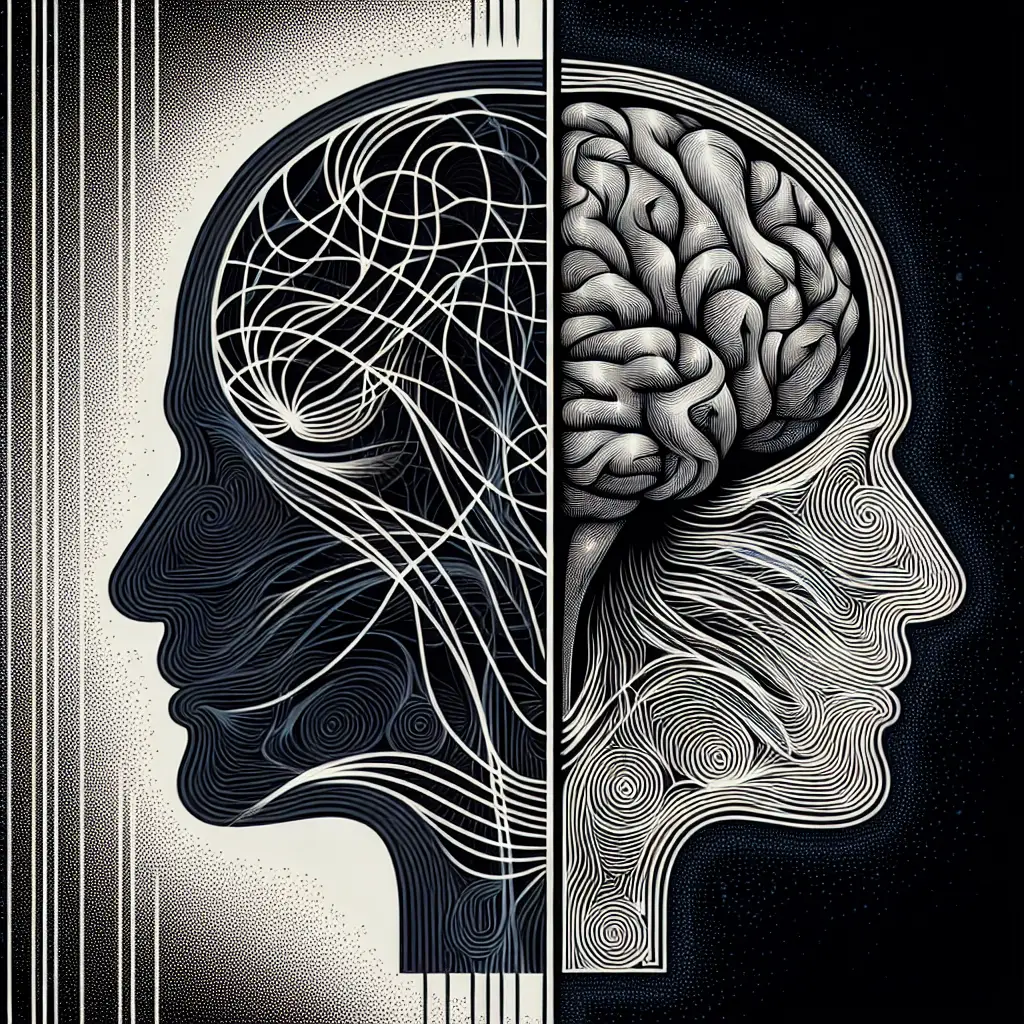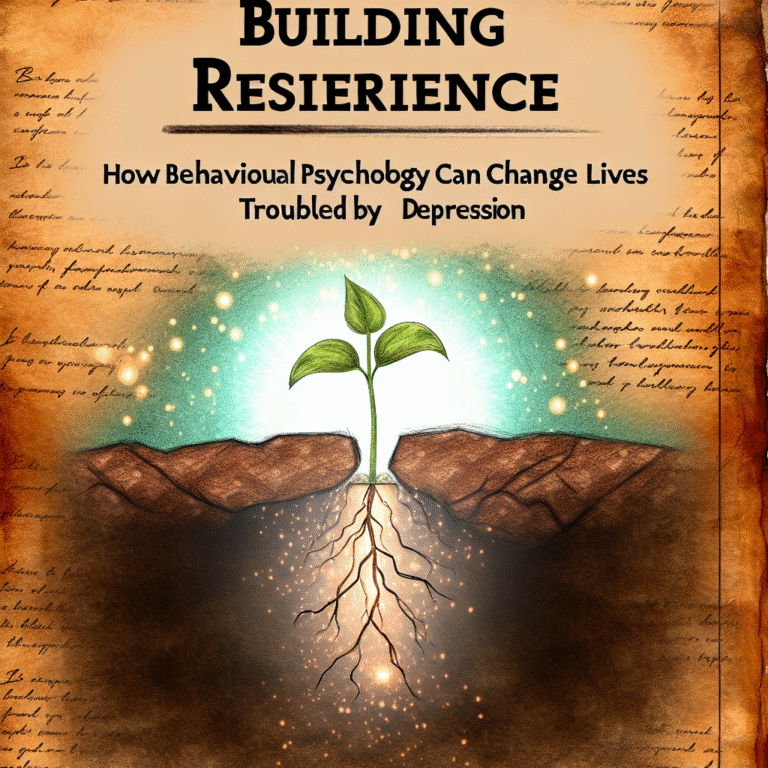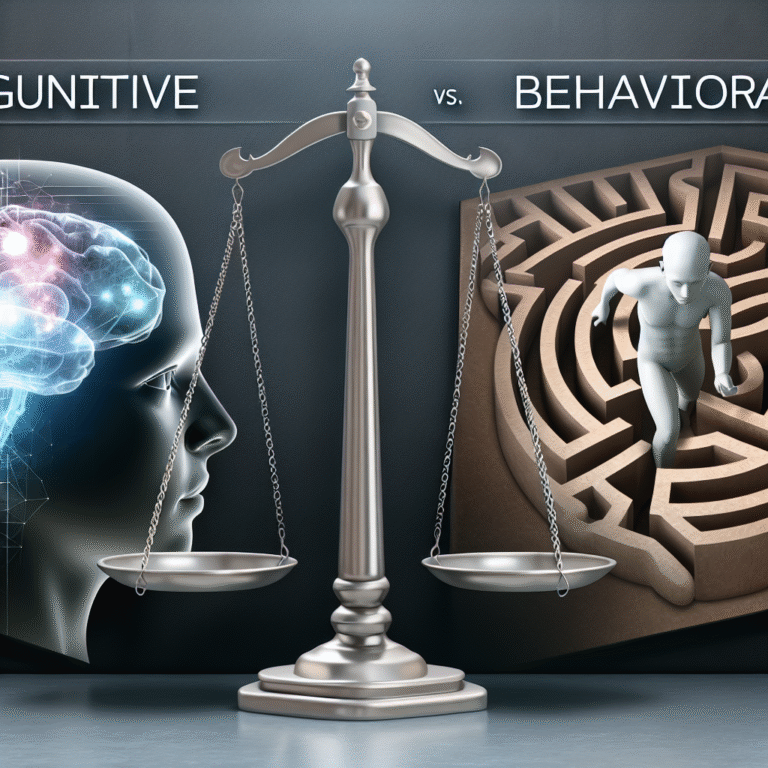
From Behavior to Thought: Exploring the Divergence of Behavioral and Cognitive Psychology
Introduction
In a world where mental health awareness is more vital than ever, understanding the psychological frameworks that guide human behavior is crucial. Among these frameworks, behavioral and cognitive psychology stand at the forefront, offering distinct yet interrelated perspectives on the human mind. From Behavior to Thought: Exploring the Divergence of Behavioral and Cognitive Psychology is not just an academic exploration; it’s a pathway to understanding ourselves better and finding effective strategies for personal growth and mental well-being. This article delves into the core principles of both approaches, illuminates their differences, and uncovers how they can work synergistically in real-world applications.
The Essence of Behavioral Psychology
At its core, behavioral psychology posits that all behaviors are learned through interaction with the environment. This foundational belief, often associated with psychologists such as B.F. Skinner, Ivan Pavlov, and John Watson, emphasizes observable behavior as the primary subject of psychological study. To fully grasp the divergence with cognitive psychology, let’s break down some essential principles.
Key Principles of Behavioral Psychology
Conditioning: Behavioral psychology is often rooted in two main types of conditioning: classical conditioning and operant conditioning. Classical conditioning, demonstrated by Pavlov’s experiments with dogs, involves learning through association, while operant conditioning focuses on behavior changes through reinforcement or punishment.
Reinforcement: This principle underlines the role of positive and negative reinforcements in shaping behavior. Positive reinforcement encourages a behavior through rewards, while negative reinforcement involves the removal of unpleasant stimuli to increase a behavior’s occurrence.
- Observable Behavior: Behavioral psychology emphasizes that only observable behaviors, not internal mental states, can be scientifically studied. This perspective has led to an extensive body of research in the form of behavior modification techniques.
Case Study: The Rise of Behavioral Therapy
Consider the case of Sarah, a young woman struggling with severe anxiety. Through a behavior therapy approach, she engaged in exposure therapy—a form of behavioral therapy where the patient is gradually exposed to anxiety-provoking stimuli in a controlled manner. Over time, Sarah learned to manage her anxiety through repeated exposure, highlighting how behavioral principles can effect real change in a person’s life.
Relevance to the Topic: This case underscores the effectiveness of behavioral approaches in directly addressing and modifying problematic behaviors.
The Cognitive Revolution
Conversely, cognitive psychology emerged as a response to the limitations of behavioral psychology. It brings to light the internal processes of the mind, positing that to understand behavior, one must also understand thought.
Key Principles of Cognitive Psychology
Mental Processes: Unlike behavioral psychology, the cognitive approach considers internal mental processes—such as perception, memory, and problem-solving—as fundamental components influencing behavior.
Schemas: Cognitive psychologists like Jean Piaget and Aaron Beck developed the concept of schemas—mental frameworks that help individuals organize and interpret information. These schemas profoundly influence how one perceives the world and reacts to experiences.
- Cognitive Behavioral Therapy (CBT): This therapeutic approach merges cognitive and behavioral principles, allowing clients to challenge and modify dysfunctional thoughts that impact their behavior and emotional states.
Case Study: Transforming Thought Patterns
Take, for example, John, who struggled with depression due to persistent negative thought patterns. By participating in cognitive behavioral therapy, he learned to identify these negative thoughts and replace them with more realistic, positive ones. This shift not only improved his mood but also led to healthier behavioral choices.
Relevance to the Topic: John’s experience illustrates how cognitive psychology directly addresses thought processes that can alter behavior, emphasizing the importance of internal cognition in understanding the human experience.
Comparative Analysis: Behavioral vs. Cognitive Psychology
Understanding the divergence between these two psychological models is essential for devising effective treatment approaches and gaining a comprehensive view of human psychology.
| Aspect | Behavioral Psychology | Cognitive Psychology |
|---|---|---|
| Focus | Observable behavior | Internal thought processes |
| Key Figures | B.F. Skinner, Ivan Pavlov | Jean Piaget, Aaron Beck |
| Treatment Approaches | Behavior modification, exposure therapy | Cognitive restructuring, CBT |
| Principles | Conditioning, reinforcement | Schemas, cognitive distortions |
| Research Methodology | Experimental, observational | Cognitive experiments, case studies |
| Application | Behavior therapy, pain management | CBT, educational psychology |
Understanding the Divergence
Philosophical Underpinnings: Behavioral psychology is rooted in empiricism—where knowledge arises from sensory experience, while cognitive psychology embraces a more introspective approach that values internal thought processes.
Methodological Differences: Observational studies are prominent in behavioral research, whereas cognitive psychology often employs experimental methods that can be more subjective.
- Therapeutic Applications: Behavioral therapies focus solely on altering behaviors; cognitive therapies aim to change the thinking patterns that lead to those behaviors, creating a more holistic approach.
The Integration of Behavioral and Cognitive Approaches
As we explore the journey from behavior to thought, it’s worth noting that these psychological approaches can complement each other in many ways. The fusion of cognitive and behavioral principles leads to innovative therapies and strategies that address both behavior and cognition.
Case Study: CBT in Practice
Anxiety disorders provide an excellent example of how integrating cognitive and behavioral techniques can lead to positive outcomes. Patients typically engage in cognitive restructuring to identify and challenge distorted beliefs about their anxiety while also employing behavioral strategies like exposure therapy to reduce avoidance behavior.
Relevance to the Topic: This integration demonstrates the effectiveness of addressing both cognitive distortions and observable behaviors, embodying the essence of From Behavior to Thought: Exploring the Divergence of Behavioral and Cognitive Psychology.
Practical Applications in Everyday Life
Understanding these psychological frameworks extends beyond therapy. Their principles can be applied in various settings, such as education, workplace environments, and personal self-improvement.
1. Education
In educational contexts, teachers can employ behavioral techniques (reinforcement) to promote desired behaviors while also using cognitive strategies (like encouraging students to reflect on their learning processes) to enhance understanding and retention.
2. Workplace
Organizations can adopt workplace strategies that recognize the importance of both behavior and cognition. This might include implementing behavior-based management systems that reinforce productive behaviors while also fostering a positive cognitive environment through supportive leadership and employee feedback.
3. Personal Development
Individuals can utilize a combination of behavioral and cognitive techniques for personal growth. Setting specific behavior goals (like daily exercise) while also working on challenging negative self-talk can create a well-rounded path to personal improvement.
Conclusion
From Behavior to Thought: Exploring the Divergence of Behavioral and Cognitive Psychology reveals not just a split in academic thought but provides a comprehensive guide for understanding and improving mental health. By appreciating the unique contributions of both approaches, individuals, therapists, educators, and organizations can create holistic strategies that address the complexities of human behavior.
As we continue to explore the intricate dance between behavior and thought, one thing remains clear: understanding our minds and actions is an essential step toward achieving the lives we desire. As we embrace the insights from both behavioral and cognitive psychology, we empower ourselves to create meaningful change in our daily lives.
FAQs Section
1. What is the main difference between behavioral and cognitive psychology?
Behavioral psychology focuses on observable behaviors and how they are learned through interaction with the environment, while cognitive psychology places emphasis on internal mental processes such as thoughts, perceptions, and cognitive patterns.
2. How can both approaches be utilized in therapy?
Therapies like CBT combine elements of both behavioral and cognitive psychology, addressing both negative thought patterns and maladaptive behaviors to create a more holistic treatment approach.
3. Are there specific conditions where one approach is more effective than the other?
Some conditions, like anxiety disorders, may benefit from a combination of both approaches. However, behavioral psychology may be more effective for specific phobias, while cognitive approaches are often better for addressing distorted thinking in depression.
4. How can I incorporate these psychological principles into my daily life?
You can apply behavioral principles by setting specific, measurable goals and rewarding yourself for achieving them. Cognitive strategies can involve journaling to reflect on your thoughts and challenge any negative thinking patterns.
5. What role do schemas play in cognitive psychology?
Schemas are cognitive frameworks that help individuals organize and interpret information. They are crucial in shaping our perceptions and reactions, influencing how we interact with our environment and respond to experiences.
By merging the insights gleaned from behavioral and cognitive psychology, we can harmonize our efforts from behavior to thought, ultimately enriching our understanding of ourselves and those around us.
















